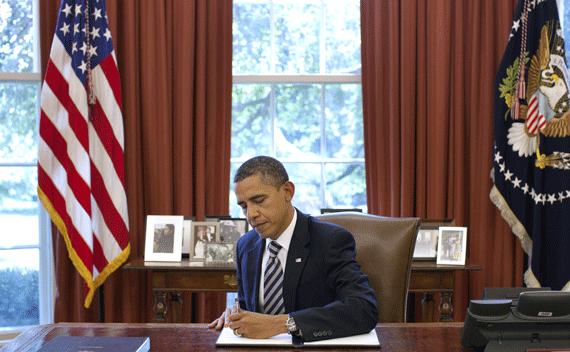The World Next Week: Debt and Debate
More on:

The World Next Week podcast is up. Bob McMahon and I discussed the continued fallout from and reaction to this week’s debt deal; the Republican presidential debate and Straw Poll in Iowa; the Syrian government’s crackdown on protesters; and signs of fracture within Libya’s rebel leadership.
[audio: http://www.cfr.org/content/publications/media/podcast/2011/20110804_TWN…]
The highlights:
- The deal to raise the debt ceiling traded in a crisis now for a confrontation later this fall. It also did not solve the U.S. government’s fiscal problems. How much government should spend and what it should spend taxpayer dollars on will be the issue over the next year—and even after that.
- With the exception of Jon Huntsman, who backed the debt ceiling deal, GOP presidential candidates will almost certainly use next week’s Republican presidential debate to criticize it. They will praise the Ryan plan and hail the virtues of cut-cap-and-balance. They likely won’t acknowledge that the Ryan plan would mean continued federal red ink for years to come or that a balanced budget amendment could leave the federal government unable to handle a future economic crisis.
- The Syrian government has intensified its crackdown on protesters, prompting the UN Security Council to issue a presidential statement condemning the Assad government’s human rights abuses. The Obama administration has increased its criticism of Bashar Al-Assad but has not yet called for him to go.
- Muammar al-Qadaffi continues to hold onto power in Libya, while questions about the capacity of the Transitional National Council to lead are growing in the wake of the killing of rebel general Abdel Fattah Younis. Qaddafi’s sons have spoken of collaborating with Islamist forces, which represents a 180-degree reversal from the stance their father took at the start of Operation Odyssey Dawn. Then he argued that the West should leave him be because otherwise Islamists would come to power in Libya.
- Bob’s Figure of the Week is U.S. Ambassador to Syria Robert Ford. My Figure of the Week is 842. Listen to the podcast to find out why.
The New York Times reports on Tuesday’s conclusion of the drawn-out debt duel, and the Washington Post discusses the international and market reaction to the deal. CNN’s “Political Ticker” covers Romney’s decision to skip the Iowa Straw Poll, as well as the six campaigns who will make an appearance. The Wall Street Journal discusses the UN Security Council’s decision to condemn the Syrian government, and my colleague Elliott Abrams has a plan for avoiding a Syrian spiral into civil war. The Washington Post has the story on continued fighting in Libya, even during the Ramadan holiday, and Al Arabiya reports on tensions within the rebel leadership.
More on:
 Online Store
Online Store